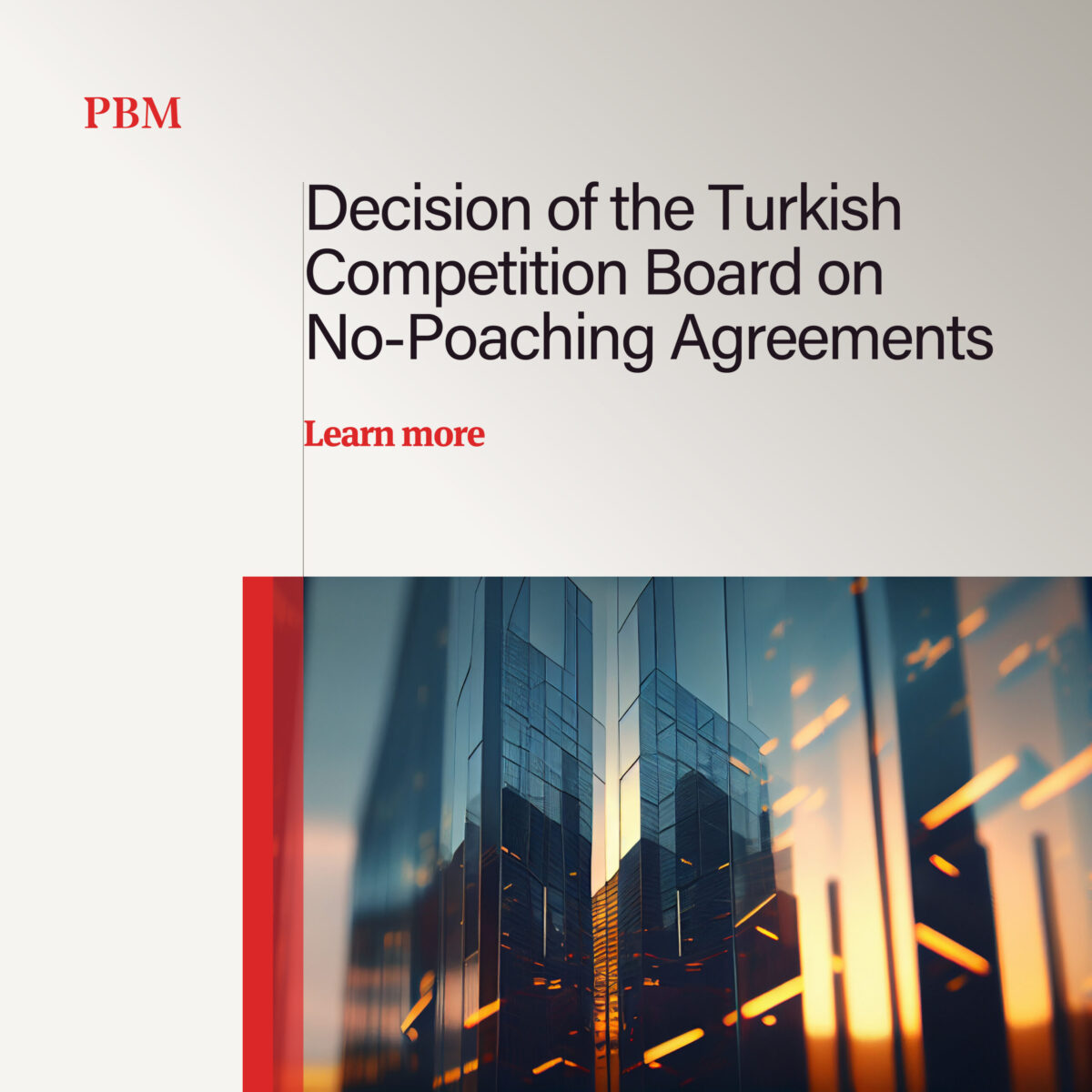Rekabet Kurulu’ndan Çalışan Ayartmama Anlaşmalarına İlişkin Karar
July 30, 2025Kripto Varlık Merkezi Kayıt Sistemi İş ve İşlem Kuralları Yönergesi yayımlandı
August 4, 2025
Decision of the Turkish Competition Board on No-Poaching Agreements
Following the much-anticipated Guideline on Competition Law Violations in Labour Markets (“Guideline”), the Turkish Competition Board (“Board”) published its decision dated 15.06.2023 and numbered 23-34/649-218 (“Decision”). In this Decision, the Board reaffirmed the position set forth in the Guideline that no-poaching agreements between competing undertakings in labour markets constitute a violation of Article 4 of Law No. 4054 on the Protection of Competition (“Law”). The Board assessed that no-poaching arrangements are clearly incompatible with competition law in terms of both their restrictive effects and objectives, and concluded the investigation through the settlement procedure by imposing administrative monetary fines on the undertakings concerned.
In its Decision, the Board emphasized the fundamental principle that employees’ freedom to change jobs and competition among employers in the labour market are as important as competition in product and service markets. The Board noted that no-poaching agreements hinder undertakings from independently determining their employment strategies and wage policies, and found that such provisions restrict employees’ access to job opportunities and artificially suppress wage dynamics in the market. Accordingly, the Board concluded that no-poaching agreements constitute a clear infringement of Article 4 of the Law not only by their effects, but also by their very objectives.
In the Decision, the Board underlined that such restrictions, even when based on an employment relationship or a service agreement, must qualify as ancillary restraints—meaning they should be narrowly tailored, be proportionate, be limited in duration, apply only to employees directly involved, and be directly related to a legitimate collaboration between the parties. Given that the no-poaching provision in question was of indefinite duration and that the parties operated in overlapping markets, the Board found that these conditions were not met and that the restrictive provision could not be justified. The Board further concluded that defenses based on arguments such as maintaining “staff stability” or preserving “service quality” were of an abstract nature, did not eliminate the restrictive effect on competition, and unjustly limited employment opportunities for employees.
In the Decision, the Board emphasized that no-poaching provisions should not be confused with non-compete restrictions as regulated under the Turkish legal system. Specifically, non-compete clauses under Articles 444 to 447 of the Turkish Code of Obligations may only be agreed upon in writing between an employee and an employer, subject to strict conditions and judicial oversight. Such restrictions must aim to protect the employer’s legitimate interests—such as customer base or trade secrets—must not exceed two years in duration as a rule, and must not unfairly jeopardize the employee’s economic future. In contrast, no-poaching agreements are typically concluded—often orally or implicitly—between undertakings, without the knowledge of the affected employees, and are frequently applied to a broad group of employees. These arrangements prevent individuals who are not party to the agreement from accessing job opportunities, thereby harming both the labour market and individual rights. For these reasons, the Board made it clear that, although no-poaching agreements may produce similar effects to non-compete clauses, they cannot be subject to the same legal assessment under Turkish law.
In conclusion, the Board considers no-poaching provisions to be valid only under specific conditions as ancillary restraints; in the absence of such conditions, these arrangements are deemed as clear infringement of competition law (violation of the objective). It is therefore of utmost importance that employers review any restrictions on employee mobility included within their employment policies or cooperation agreements with third parties, and carefully assess whether such provisions are legitimate, reasonable, and proportionate.


